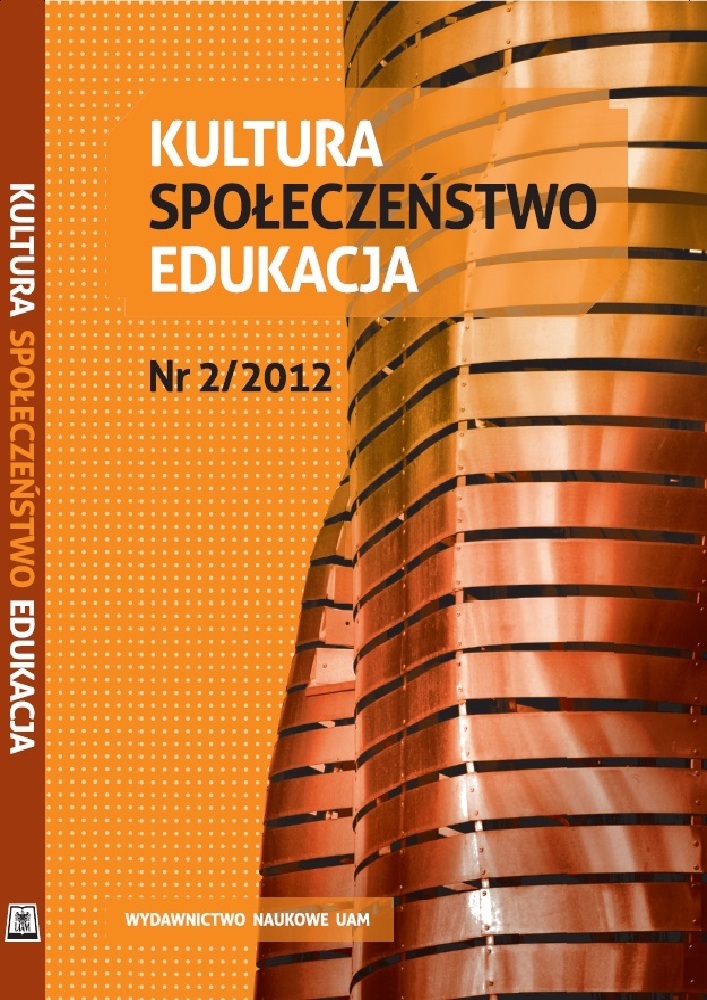Abstract
The orientation of a contemporary society towards a global career creates the need of rebuilding the frames of human activity and innovation. The most important is active participation and cooperation in a reality undergoing a permanent change. Conceptualization of quality new apprehension of career issues as an individual’s possession indicates a many-sided character of a contemporary discourse, which combines implications of an interdisciplinary dialogue and creates the need to review theoretical reflection about the way of understanding career and conditions, as well as indicators of its formation and construction. The „prodevelopmental orientation” is a remedy for a contemporary human being to be oneself again in this situation in the world of careers. In this attitude towards the definition of „a career”, one underlines importance of constructing (not choosing) a career for designing a quality of life.References
Adekola B. 2011. „Career Planning and Career Management as Correlates for Career Development and Job Satisfaction. A Case Study of Nigerian Bank Employees”. Australian Journal of Business and Management Research 2.
Bańka A. 2005a. Motywacja osiągnięć. Poznań - Warszawa.
Bańka A. 2005b. Proaktywność a tryby samoregulacji. Poznań - Warszawa.
Bauman Z. 1960. Kariera. Warszawa.
Biolos J. 2006. Modele kariery XXI-go wieku. W Zarządzanie karierą. Warszawa.
Cybal-Michalska A. 2006. Tożsamość młodzieży w perspektywie globalnego świata. Studium socjopedagogiczne. Poznań.
Czarnecki K.M. 1973. Problemy osobowości zawodowej człowieka pracy produkcyjnej. Katowice.
Hejnicka-Bezwińska T. 1991. Orientacje życiowe młodzieży. Bydgoszcz.
Kopaliński W. 1994. Słownik wyrazów obcych i zwrotów obcojęzycznych. Warszawa.
Łukaszewski W. 1984. Szanse rozwoju osobowości. Warszawa.
Maree J.G. 2010. „Brief Overview of the Advancement of Postmodern Approaches to Career Counseling”. Journal for Psychology in Africa 20 (3).
Melosik Z. 2007. Teoria i praktyka edukacji wielokulturowej. Kraków.
Miś A. 2006. Kształtowanie karier w organizacji. W Zarządzanie zasobami ludzkimi. Warszawa.
Patton W., M. McMahon. 2006. Career Development and Systems Theory. Connecting Theory and Practice. Rotterdam.
Zarządzanie karierą. 2006. Tłum. D. Piotrowska. Warszawa.
Rokicka E. 1992. „Pojęcie „kariery”. Perspektywa strukturalno-funkcjonalna i interakcjonistyczna”. Przegląd Socjologiczny XLI.
Sarapata A. 1993. Nowoczesność Polaków. Warszawa.
Sikorska-Michalak A., O. Wojniłko. 1998. Słownik współczesnego języka polskiego. Warszawa.
Skarżyńska K. 1990. Orientacja egalitarna i nieegalitarna. W Orientacje społeczne jako element mentalności. Poznań.
Thomas R.J. 2004. Blue-Collar Careers: Meaning and Choice in a World of Constraints. W Handbook of Career Theory. Cambridge.
Wołk Z. 2009. Kultura pracy, etyka i kariera zawodowa. Radom.
Zandecki A. 1996. Wykształcenie a jakość życia. Toruń - Poznań.
Ziółkowski M. 1990. Orientacje indywidualne a system społeczny. W Orientacje społeczne jako element mentalności. Poznań.
Zysk T. 1990. Orientacja prorozwojowa. W Orientacje społeczne jako element mentalności. Poznań.
License
Copyright (c) 2017 Agnieszka Cybal-Michalska

This work is licensed under a Creative Commons Attribution-NoDerivatives 4.0 International License.
